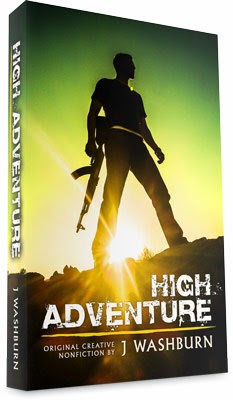
WHY I READ THE RING
C.S. Lewis said this book inspired him (in Surprised by Joy), that it filled him sehnsucht, with that longing for far-off places and forlorn hopes:“I can lay my hand on the very moment [I first tasted sehnsucht]... though I cannot date it. Someone must have left [the book] in the schoolroom… My eye fell upon [it]... carelessly, expecting nothing. A moment later, as the poet says, ‘The sky had turned round.’ What I had read was the words ‘Siegfried and the Twilight of the Gods.’ What I had seen was one of Arthur Rackham’s illustrations...
“I had never heard of Wagner, nor of Siegfried, [yet]... pure ‘Northernness’ engulfed me: a vision of huge, clear spaces hanging above the Atlantic in the endless twilight of Northern summer, remoteness, severity... I knew that I had met this before, long, long ago…, that Siegfried… belonged to the same world as Balder and the sunward-sailing cranes. And with that plunge back into my own past there arose at once, almost like heartbreak, the memory of [sehnsucht] itself, the knowledge that I had once had what I had now lacked... that I was returning at last from exile and desert lands to my own country... [These emotions and memories] flowed together into a single, unendurable sense of desire and loss… which, as I now stared round that dusty schoolroom like a man recovering from unconsciousness, had already vanished, had eluded me at the very moment when I could first say ‘It is.’ And at once I knew... that to ‘have it again’ was the supreme and only important object of desire.”Interestingly, this saga also heavily inspired Tolkien’s The Lord of the Rings. There are many parallels, including murder over a magic ring, a dragon that guards a treasure hoard, a magic artifact that makes you invisible, a broken sword that must be reforged for the heir, and several others. It includes a prelude and three sequels. It even has a similar title!

OVERVIEW
I bought an ebook with Rackham's illustrations, and the translation was a little juvenile, but the plot was still great. The Ring is divided into four parts:- Prelude: The Rhinegold
- Act I: The Valkyrie
- Act II: Siegfried
- Act III: The Twilight of the Gods
The Nibelungs, a “race of men,” live underground, in the depths of the earth, in their home called Nibelheim. They are the children of darkness, and Alberich is their Lord. He controls them with the power of a magic Ring, and commands them to collect a hoard of treasure for him, a treasure which could win him the world.
The Giants live on the face of the earth, in their home called Riesenheim. Fasolt and Fafner are their masters. They envy the power of the Nibelungs.
The race of Gods live above the earth, in the clouds, in their home called Valhalla. They are the lords of light, and Wotan (Odin) is their ruler. His spear, with which he controls the workings of the world, was cut from the original ash tree, and will never wither or die. It is the source of his power. His treaties are carved in its shaft, as a symbol of Heavenly Trust. The Nibelungs bow to him; he commands the Giants too. For all eternity, they must all obey the Lord of the Spear!
The heroic Wälsungs are the race dearest to Wotan’s heart, his beloved children, yet put down and cruelly oppressed by him. Siegmund and Sieglinde are the children of Wälse—twins, no less!
Lastly, the Norns are the fates, who serve not Wotan but Erda, and must do her bidding for the doom of the world (basically they’re the Weird Sisters from Shakespeare’s Macbeth).

SOME SPOILERS
Don’t proceed if you’re already convinced to read.I highlighted nearly the entire book, ha ha. It’s full of the mythical and epic. For example, one of my favorite parts is when the dragon’s blood spurts onto Siegfried’s hand, burning him, so he sucks on it, and upon tasting the blood he gains the ability to understand the songs of birds!
The book begins when the despicable Alberich, a dwarf, steals a hoard of gold from the Rhine Maidens. With the stolen treasure, he forges a magical ring, a powerful amulet which can make the bearer ultimately powerful, but on one condition: he must forswear love forever. Alberich does this, descending into hatred. He also forges the Tornhelm, which allows him to disappear.
One of my favorite moments is when the naive Siegfried encounters the fallen angel Brunhilde and has his own moment of sehnsucht: “How am I going to get this… this woman... to wake up, so I can get a look at her eyes? And were she to look at me, am I strong enough to face her gaze? Heavens, I can hardly stand! My hands are shaking! All for this thing that I want, which I don’t know how to describe!”

Get a FREE COPY of HIGH ADVENTURE
and sign up for my newsletter:

No comments:
Post a Comment
What was your favorite part of this post?
— J